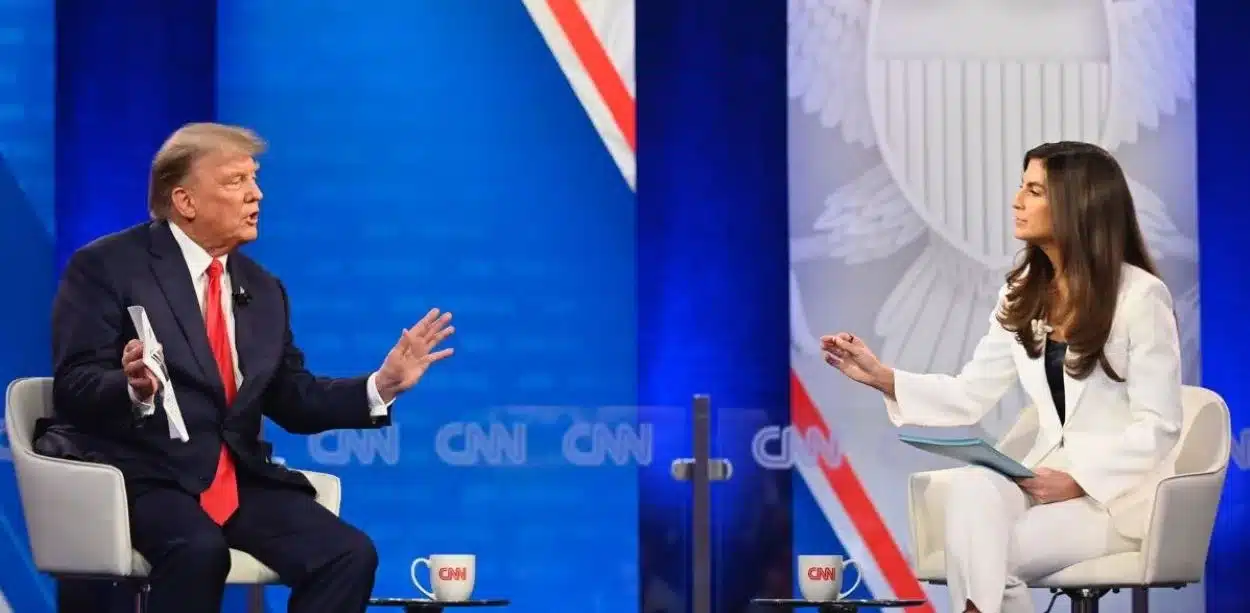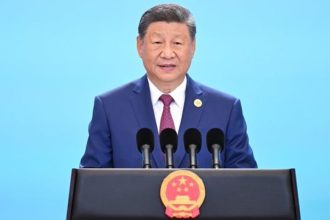The recent CNN interview featuring former U.S. President Donald Trump has stirred up controversy. He disseminated untruths and hurled abuses, leading to a wave of criticism.
The primetime event has provoked widespread disapproval and rekindled the ongoing challenge for media outlets: how to truthfully report on the Republican hopeful looking to regain the presidency.
CNN justified its actions, emphasizing its duty to hold influential figures accountable. Detractors, however, accused the network of enabling Trump to disseminate discredited theories, malign a sexual abuse survivor, and laud the perpetrators of the Capitol siege.
In the interview, watched by millions, Trump repeated unfounded allegations regarding the 2020 election being manipulated and vowed to pardon those who took part in the violent incursion on the Capitol. He also disparaged a winner of a sexual abuse lawsuit. The event drew strong reactions, including censure from Democrats and even a CNN media correspondent.
The incident has reignited the debate on handling Trump’s coverage, given his propensity for false and provocative statements. While some advocate for audience autonomy in forming their conclusions, others accuse CNN of prioritizing spectacle over the news, thereby failing their viewers.
The media’s handling of Trump has been a point of contention since 2016, when they were accused of inadvertently aiding his presidential win through disproportionate coverage. Despite increased efforts to fact-check, the sheer volume and frequency of Trump’s misrepresentations still pose a formidable challenge for the media in debunking them effectively.
This episode underscores Trump’s polarizing persona and the conundrum media outlets face in accurately reporting his remarks. It also raises questions about whether the media has forgotten past lessons from covering Trump. While some push for ethical journalism and fact-checking, others worry that Trump’s falsehoods, amplified by his stature, could inadvertently be given credence.






